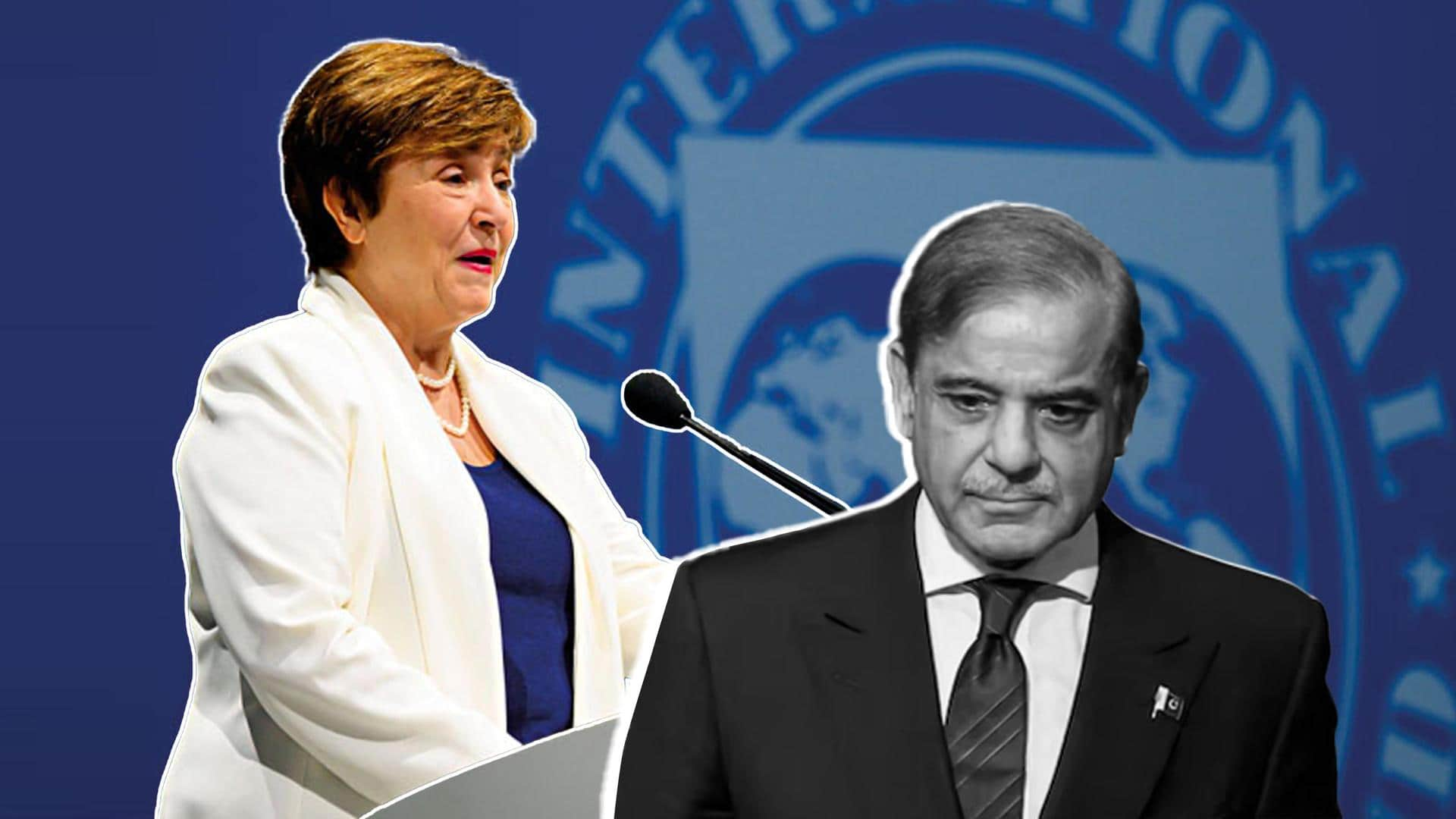
Function as country; tax rich, subsidize poor: IMF tells Pakistan
What's the story
The International Monetary Fund (IMF) has advised Pakistan that if it wants to function as a country, it must tax the rich and the high earners while ensuring that only the poor receive subsidies.
In a recent interview with German state broadcaster Deutsche Welle, IMF chief Kristalina Georgieva said Pakistan must take strong measures to save itself from getting into a "dangerous place."
Context
Why does this story matter?
Pakistan is currently battling decades-high runaway inflation, and its foreign reserves have depleted significantly.
Laden with debt, Pakistan secured a $6 billion bailout from the IMF in 2019. However, the IMF reportedly held back an additional installment of $1.1 billion, demanding economic reforms.
Under the IMF's pressure last month, Pakistan removed its unofficial exchange price cap—triggering its currency's biggest single-day decline of nearly 10%.
Measures
Pakistan must avoid getting debt restructured: IMF chief
Georgieva also suggested two primary measures to help Pakistan avoid getting its debt restructured.
The first was focusing on tax revenues from the well-earning citizens of the public and private sectors, who were capable of contributing to the economy.
The second step was to ensure equitable distribution of resources by extending the benefit of subsidies only to those in dire need of the same.
Tax
Sales tax on luxury imports raised by 8%
Toeing the line, Pakistan hiked the sales tax on luxury imports from 17% to 25%. Goods ranging from chocolates, cosmetics, and home appliances to smartphones, business-class air travel, and cars have become costlier in the country.
Moreover, the general sales tax was raised from 17% to 18%. Due to extremely low foreign exchange reserves, all imports have been halted, except for food and pharmaceuticals.
Default
Pakistan already bankrupt, IMF loan won't help much: Defense minister
Last week, Pakistan's Defence Minister Khawaja Asif asserted that the country wasn't just on the verge of bankruptcy, rather, it had already defaulted and become insolvent.
He blamed political leaders and bureaucrats for the financial mismanagement which has pushed the country to the brink of collapse.
He further said the solution needed would not come from the IMF but from within the country.
Factors
Flood, global energy crisis, financial mismanagement worsened condition
The IMF has been demanding Pakistan's government adopt reforms, relax the economy, and let market forces determine exchange rates.
Moreover, a severe flood inundating one-third of the country, coupled with a global energy crisis, has pushed a significant portion of the population to the margins.
The government is finding it difficult to take stern measures as the general election is due later this year.